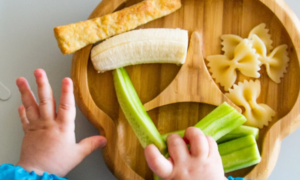While discussing our teenage daughters with a friend, the topic of eating disorders came up. Both of us were a bit puzzled by how much sweets they were having, because we never liked them at all (the sweets, we love our daughters!). We were unsure of how to tackle the subject of sweets, and more generally of food choices, missed meals, and what can appear as « poor eating habits ». Any discussion with a teen is such a minefield! What we absolutely want to avoid though, is that our children develop an eating disorder. How to can we prevent that and help our children have a healthy relationship with food?
All food is food.
When you have a child, you want to teach them that food is just food. Milk, nuts, fruit, veg, fish, biscuits are just food. It is that simple. The problem arises when we classify foods as « healthy/unhealthy », « good/bad », « clean/dirty » and attach emotional labels to it. Food is food, it has no moral value.

Don’t use food as a reward or a punishment.
Don’t take it away for a bad mark or bad behaviour. Using food as a treat encourages them to eat when they may not be hungry, potentially creating detrimental habits (for example regulating emotions with food). It can also make them assume that food is scarce, which can lead to overeating.
Listen to you body.
Teach your children to tune into their bodily sensations and notice when they are hungry and full, and to listen to these satiety signals. This goes with teaching them to trust their bodies, more than the messages about food we are bombarded with. Support your children by not forcing them to finish a meal.
Doing this can be difficult sometimes, because as parents we worry our children don’t eat enough of this or consume too much of that, consequently not getting the nutrients they need. Supporting our children and teens, offering them nutritious meals, and showing them we have a healthy relationship with our body and with food is the best we can do to prevent eating disorders.